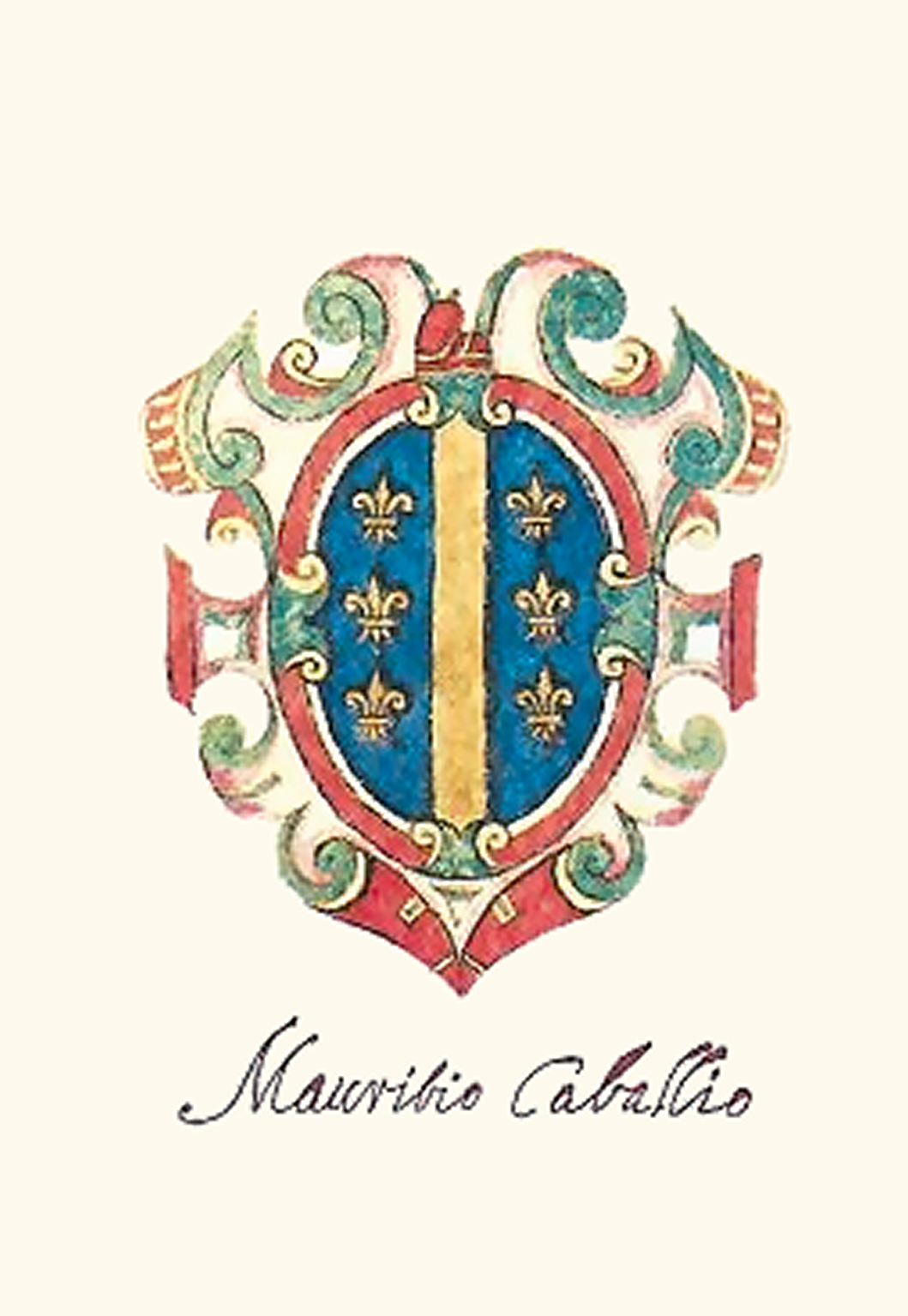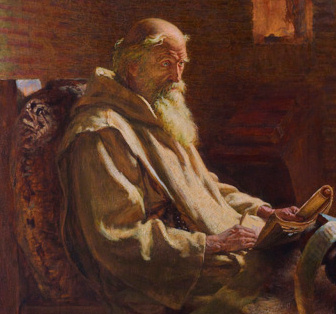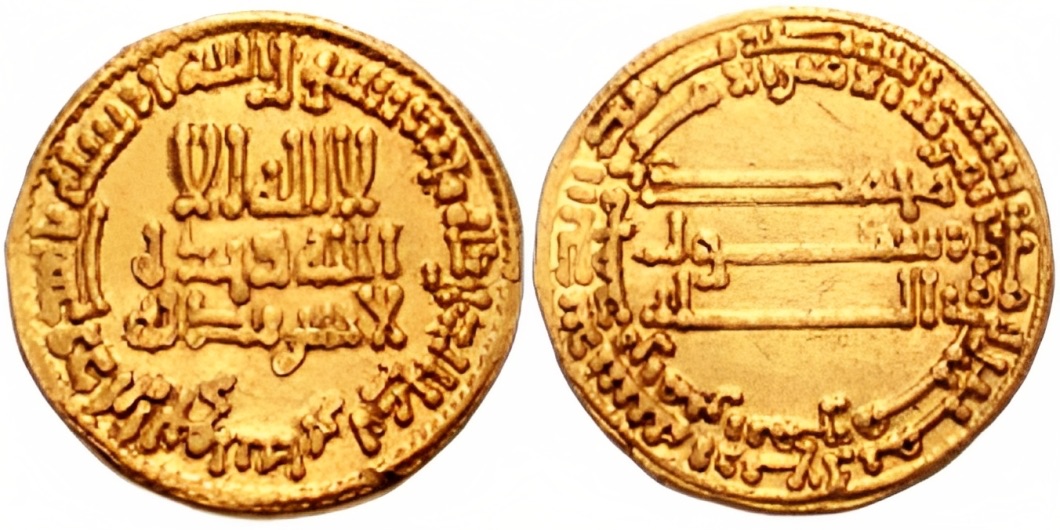|
Arwa Bint Mansur Al-Himyari
Arwā bint Manṣūr al-Ḥimyarī ( ar, أروى بنت منصور الحميرى) also known as Umm Mūsā ( ar, ام موسى) was the famous principal wife of Abbasid caliph al-Mansur (r. 754–775) and mother of third Abbasid caliph al-Mahdi. Biography Arwa was the daughter of Mansur al-Himyari, a descendant of the Banu Himyar tribe, whose ancestors ruled Yemen in pre-Islamic times (110 BCE–525 CE). She was Al-Mansur's first wife. Arwa was also known as ''Umm Musa'', her lineage went back to the Kings of Himyarite. She married Abu Ja'far Abdallah ibn Muhammad, the future Abbasid caliph al-Mansur. She had two sons from her marriage, Ja'far and Muhammad, who became caliph al-Mahdi. According to their pre-marital agreement, while Arwa was still alive al-Mansur had no right to take other wives and have concubines. Al-Mansur tried to annul this agreement several times, but Arwa always managed to convince the judges not to do that. The two sons of Arwa, Muhammad and Ja'far we ... [...More Info...] [...Related Items...] OR: [Wikipedia] [Google] [Baidu] |
Abbasid Caliph
The Abbasid caliphs were the holders of the Islamic title of caliph who were members of the Abbasid dynasty, a branch of the Quraysh tribe descended from the uncle of the Islamic prophet Muhammad, Al-Abbas ibn Abd al-Muttalib. The family came to power in the Abbasid Revolution in 748–750, supplanting the Umayyad Caliphate. They were the rulers of the Abbasid Caliphate, as well as the generally recognized ecumenical heads of Islam, until the 10th century, when the Shi'a Fatimid Caliphate (established in 909) and the Caliphate of Córdoba (established in 929) challenged their primacy. The political decline of the Abbasids had begun earlier, during the Anarchy at Samarra (861–870), which accelerated the fragmentation of the Muslim world into autonomous dynasties. The caliphs lost their temporal power in 936–946, first to a series of military strongmen, and then to the Shi'a Buyid Emirs that seized control of Baghdad; the Buyids were in turn replaced by the Sunni Seljuk Turks i ... [...More Info...] [...Related Items...] OR: [Wikipedia] [Google] [Baidu] |
Mecca
Mecca (; officially Makkah al-Mukarramah, commonly shortened to Makkah ()) is a city and administrative center of the Mecca Province of Saudi Arabia, and the Holiest sites in Islam, holiest city in Islam. It is inland from Jeddah on the Red Sea, in a narrow valley above sea level. Its last recorded population was 1,578,722 in 2015. Its estimated metro population in 2020 is 2.042million, making it the List of cities in Saudi Arabia by population, third-most populated city in Saudi Arabia after Riyadh and Jeddah. Pilgrims more than triple this number every year during the Pilgrimage#Islam, pilgrimage, observed in the twelfth Islamic calendar, Hijri month of . Mecca is generally considered "the fountainhead and cradle of Islam". Mecca is revered in Islam as the birthplace of the Prophets and messengers in Islam, Islamic prophet Muhammad. The Hira cave atop the ("Mountain of Light"), just outside the city, is where Muslims believe the Quran was first revealed to Muhammad. Vis ... [...More Info...] [...Related Items...] OR: [Wikipedia] [Google] [Baidu] |
Wives Of Abbasid Caliphs
A wife ( : wives) is a female in a marital relationship. A woman who has separated from her partner continues to be a wife until the marriage is legally dissolved with a divorce judgement. On the death of her partner, a wife is referred to as a widow. The rights and obligations of a wife in relation to her partner and her status in the community and in law vary between cultures and have varied over time. Etymology The word is of Germanic origin, from Proto-Germanic *''wībam'', "woman". In Middle English it had the form ''wif'', and in Old English ''wīf'', "woman or wife". It is related to Modern German ''Weib'' (woman, female), and Danish ''viv'' (wife, usually poetic); The original meaning of the phrase "wife" as simply "woman", unconnected with marriage or a husband/wife, is preserved in words such as "midwife", "goodwife", "fishwife" and " spaewife". Summary In many cultures, marriage is generally expected that a woman will take her husband's surname, though that is not ... [...More Info...] [...Related Items...] OR: [Wikipedia] [Google] [Baidu] |
8th-century Women From The Abbasid Caliphate
The 8th century is the period from 701 ( DCCI) through 800 ( DCCC) in accordance with the Julian Calendar. The coast of North Africa and the Iberian Peninsula quickly came under Islamic Arab domination. The westward expansion of the Umayyad Empire was famously halted at the siege of Constantinople by the Byzantine Empire and the Battle of Tours by the Franks. The tide of Arab conquest came to an end in the middle of the 8th century.Roberts, J., ''History of the World'', Penguin, 1994. In Europe, late in the century, the Vikings, seafaring peoples from Scandinavia, begin raiding the coasts of Europe and the Mediterranean, and go on to found several important kingdoms. In Asia, the Pala Empire is founded in Bengal. The Tang dynasty reaches its pinnacle under Chinese Emperor Xuanzong. The Nara period begins in Japan. Events * Estimated century in which the poem Beowulf is composed. * Classical Maya civilization begins to decline. * The Kombumerri burial grounds are founded. * ... [...More Info...] [...Related Items...] OR: [Wikipedia] [Google] [Baidu] |
764 Deaths
__NOTOC__ Year 764 ( DCCLXIV) was a leap year starting on Sunday (link will display the full calendar) of the Julian calendar. The denomination 764 for this year has been used since the early medieval period, when the Anno Domini calendar era became the prevalent method in Europe for naming years. Events By place Europe * Domenico Monegario is deposed, after Pope Paul I demanded donations from Venice. Monegario is blinded and exiled, and succeeded by Maurizio Galbaio as the 7th doge of Venice. During his reign, Venetian wealth is increased via trade. Britain * King Offa of Mercia conquers Kent, and brings an end to the rule of kings Ealhmund and Sigered in West Kent. He imposes Mercian overlordship on the kingdom, but allows a local king, Heaberht, to rule there. Asia * October 14– 21 – Fujiwara no Nakamaro Rebellion: A short-lived revolt led by Fujiwara no Nakamaro is suppressed. Emperor Junnin is deposed after a 6-year reign, and forced into exi ... [...More Info...] [...Related Items...] OR: [Wikipedia] [Google] [Baidu] |
735 Births
__NOTOC__ Year 735 ( DCCXXXV) was a common year starting on Saturday (link will display the full calendar) of the Julian calendar. The denomination 735 for this year has been used since the early medieval period, when the Anno Domini calendar era became the prevalent method in Europe for naming years. Events By place Europe * Charles Martel, Merovingian mayor of the palace, invades Burgundy. Duke Hunald I of Aquitaine refuses to recognise the authority of the Franks, whereupon Charles marches south of the River Loire, seizing the cities of Bordeaux and Blaye. Within 4 years he will have subdued all the Burgundian chieftains, while continuing to fight off Moorish advances into Gaul. * King Liutprand of the Lombards raises his nephew Hildeprand to co-kingship, after a serious illness (approximate date). * Siege of al-Sakhra: Moors under Uqba ibn al-Hajjaj (governor of Al-Andalus) besiege Pelagius, king of Asturias, in the uppermost Northern mountain ranges in Iberia. T ... [...More Info...] [...Related Items...] OR: [Wikipedia] [Google] [Baidu] |
Routledge
Routledge () is a British multinational publisher. It was founded in 1836 by George Routledge, and specialises in providing academic books, journals and online resources in the fields of the humanities, behavioural science, education, law, and social science. The company publishes approximately 1,800 journals and 5,000 new books each year and their backlist encompasses over 70,000 titles. Routledge is claimed to be the largest global academic publisher within humanities and social sciences. In 1998, Routledge became a subdivision and imprint of its former rival, Taylor & Francis Group (T&F), as a result of a £90-million acquisition deal from Cinven, a venture capital group which had purchased it two years previously for £25 million. Following the merger of Informa and T&F in 2004, Routledge became a publishing unit and major imprint within the Informa "academic publishing" division. Routledge is headquartered in the main T&F office in Milton Park, Abingdon, Oxfordshire and ... [...More Info...] [...Related Items...] OR: [Wikipedia] [Google] [Baidu] |
Al-Masudi
Al-Mas'udi ( ar, أَبُو ٱلْحَسَن عَلِيّ ٱبْن ٱلْحُسَيْن ٱبْن عَلِيّ ٱلْمَسْعُودِيّ, '; –956) was an Arab historian, geographer and traveler. He is sometimes referred to as the "Herodotus of the Arabs". A polymath and prolific author of over twenty works on theology, history (Islamic and universal), geography, natural science and philosophy, his celebrated magnum opus '' Murūj al-Dhahab wa-Ma'ādin al-Jawhar'' ( ar, مُرُوج ٱلذَّهَب وَمَعَادِن ٱلْجَوْهَر, link=no), combines universal history with scientific geography, social commentary and biography, and is published in English in a multi-volume series as '' The Meadows of Gold and Mines of Gems''. Birth, travels and literary output Apart from what Al-Mas'udi writes of himself little is known. Born in Baghdad, he was descended from Abdullah Ibn Mas'ud, a companion of Muhammad. He mentions many scholar associates met on his travels thr ... [...More Info...] [...Related Items...] OR: [Wikipedia] [Google] [Baidu] |
Nabia Abbott
Nabia Abbott (31 January 1897 – 15 October 1981) was an American scholar of Islam, papyrologist and paleographer. She was the first woman professor at the Oriental Institute of the University of Chicago. She gained worldwide recognition for her researches into the emergence of the Arabic script and the oldest written documents of Islam. She was also a pioneer in the study of early Muslim women. Especially noteworthy was her biography of Aisha, one of the wives of the prophet Muhammad. Biography Nabia Abbott was born on January 31, 1897 in Mardin, Ottoman Empire. Her father was a Christian merchant whose business activities brought his family first to Mosul, then to Baghdad and finally to Bombay. There she attended various English-language schools. In 1919 she completed her undergraduate studies with honours at the Isabella Thoburn College in Lucknow. After her graduation, Nabia returned for a short time to Mesopotamia where she worked educating women. The politician and orient ... [...More Info...] [...Related Items...] OR: [Wikipedia] [Google] [Baidu] |
Zubaidah Bint Ja'far
Zubaidah bint Ja`far ibn al-Mansur () (died 26 Jumada I 216 AH / 10 July 831 CE) was the best known of the Abbasid princesses, and the wife and double cousin of Harun al-Rashid. She is particularly remembered for the series of wells, reservoirs and artificial pools that provided water for Muslim pilgrims along the route from Baghdad to Mecca and Medina, which was renamed the Darb Zubaidah in her honor. The exploits of her and her husband, Harun al-Rashid, form part of the basis for ''The Thousand and One Nights''. Biography Zubaidah's birthdate is unknown; it is known that she was at least a year younger than Harun. Her father, Ja'far was a half-brother of the Abbasid caliph al-Mahdi. Her mother, Salsal, was an elder sister of al-Khayzuran, second and most powerful wife of al-Mahdi, and mother of the future caliphs Musa al-Hadi and Harun al-Rashid. Zubaidah is a pet name, given by her grandfather, caliph al-Mansur. The name means "little butter ball". Zubaidah's real name at b ... [...More Info...] [...Related Items...] OR: [Wikipedia] [Google] [Baidu] |
Greater Khorasan
Greater Khorāsān,Dabeersiaghi, Commentary on Safarnâma-e Nâsir Khusraw, 6th Ed. Tehran, Zavvâr: 1375 (Solar Hijri Calendar) 235–236 or Khorāsān ( pal, Xwarāsān; fa, خراسان ), is a historical eastern region in the Iranian Plateau between Western and Central Asia. The name ''Khorāsān'' is Persian and means "where the sun arrives from" or "the Eastern Province".Sykes, M. (1914). "Khorasan: The Eastern Province of Persia". ''Journal of the Royal Society of Arts'', 62(3196), 279-286.A compound of ''khwar'' (meaning "sun") and ''āsān'' (from ''āyān'', literally meaning "to come" or "coming" or "about to come"). Thus the name ''Khorasan'' (or ''Khorāyān'' ) means "sunrise", viz. " Orient, East"Humbach, Helmut, and Djelani Davari, "Nāmé Xorāsān", Johannes Gutenberg-Universität Mainz; Persian translation by Djelani Davari, published in Iranian Languages Studies Website. MacKenzie, D. (1971). ''A Concise Pahlavi Dictionary'' (p. 95). London: Oxford University ... [...More Info...] [...Related Items...] OR: [Wikipedia] [Google] [Baidu] |
Egypt
Egypt ( ar, مصر , ), officially the Arab Republic of Egypt, is a transcontinental country spanning the northeast corner of Africa and southwest corner of Asia via a land bridge formed by the Sinai Peninsula. It is bordered by the Mediterranean Sea to the north, the Gaza Strip of Palestine and Israel to the northeast, the Red Sea to the east, Sudan to the south, and Libya to the west. The Gulf of Aqaba in the northeast separates Egypt from Jordan and Saudi Arabia. Cairo is the capital and largest city of Egypt, while Alexandria, the second-largest city, is an important industrial and tourist hub at the Mediterranean coast. At approximately 100 million inhabitants, Egypt is the 14th-most populated country in the world. Egypt has one of the longest histories of any country, tracing its heritage along the Nile Delta back to the 6th–4th millennia BCE. Considered a cradle of civilisation, Ancient Egypt saw some of the earliest developments of writing, agriculture, ur ... [...More Info...] [...Related Items...] OR: [Wikipedia] [Google] [Baidu] |








